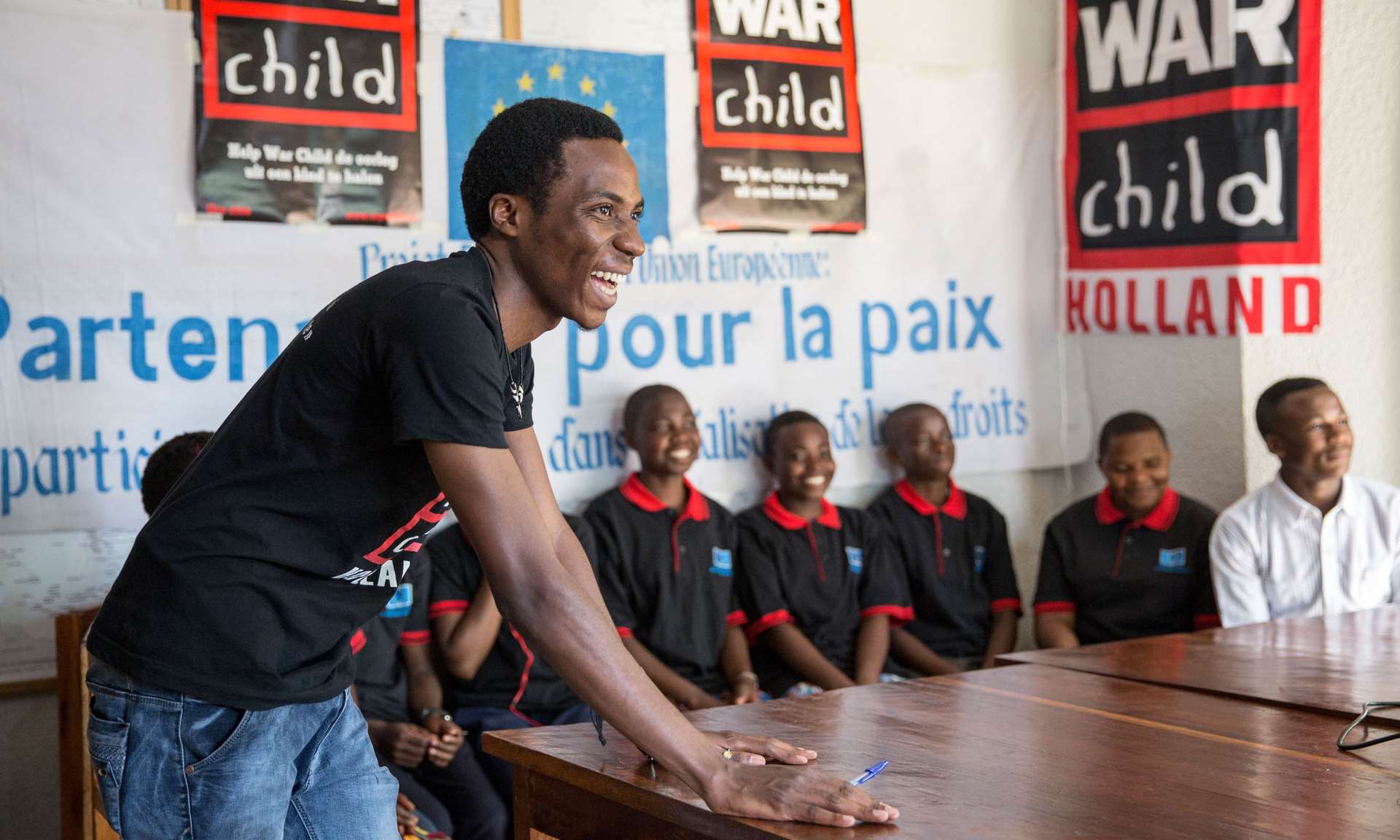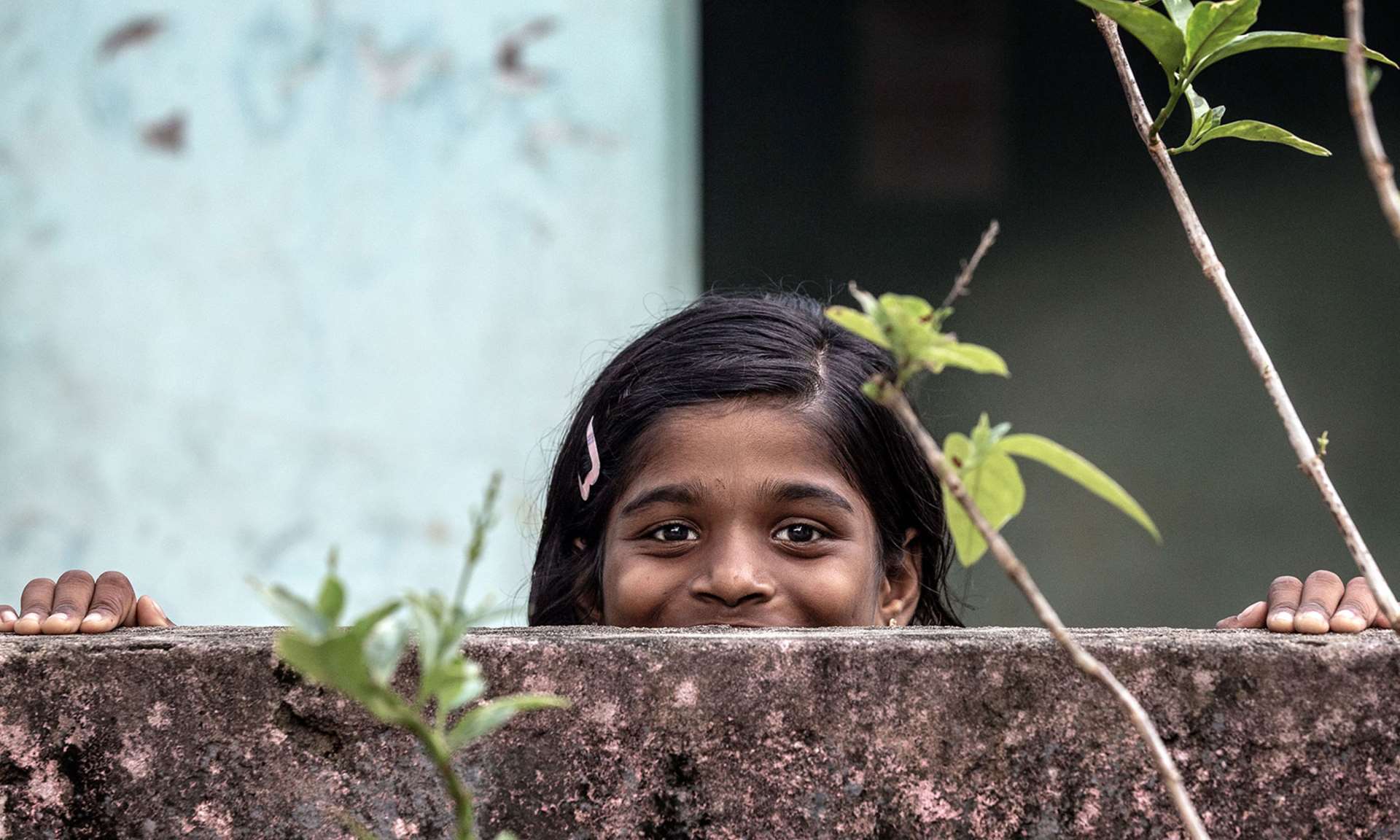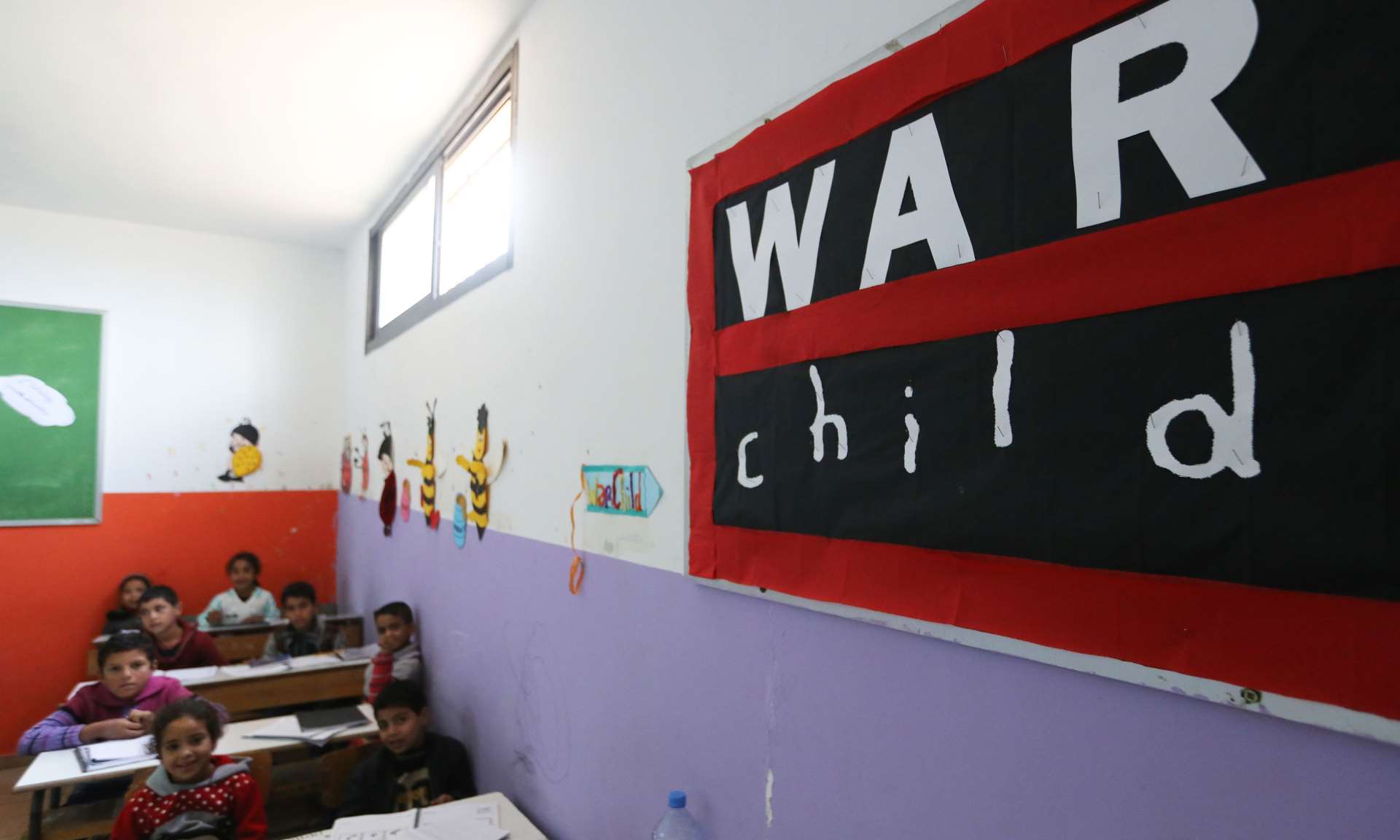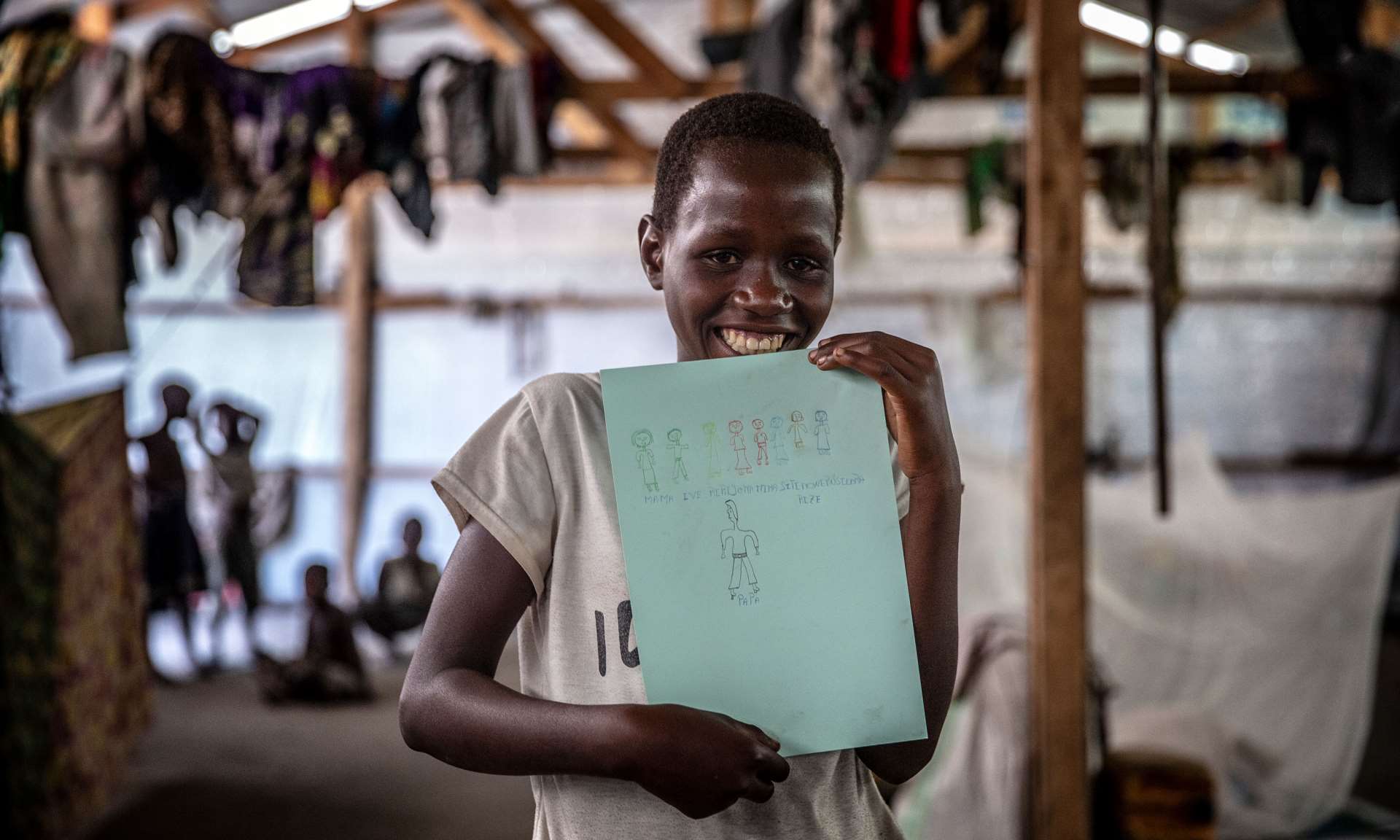Upholding Programme Quality
Each and every War Child programme around the world is subject to robust monitoring, evaluation and quality assurance. All of these efforts allow us to continually improve our work - in order to provide effective responses that are relevant to the hopes and ambitions of children worldwide.
The quality of our programmes is further strengthened through our work to align with global standards on humanitarian action. We are also active participants in a number of global humanitarian coordination bodies - including the Global Education Cluster; Global Protection Cluster; Alliance for Child Protection in Humanitarian Action; and the Inter-Agency Standing Committee Reference Group on Mental Health and Psychosocial Support in Emergency Settings.

Children and Youth First
Children and young people affected by armed conflict and violence are at the heart of all our work. Their participation in developing solutions to the challenges they face is key to the design of our programmes.
We also involve local communities in this process - to draw on their knowledge to promote the empowerment and resilience of children and youth.
We seek to understand the level of satisfaction experienced by every person who takes part in our programmes. We also collect their feedback on how they view the quality of our programmes - and use the findings to continually improve our work.
The safety and dignity of the children and youth who take part in our programmes was further upheld in 2018 with the launch of our new Child Safeguarding Policy. The policy ensures that War Child staff around the world are able to act to prevent abuse - and received a positive response from global watchdog Keeping Children Safe (KCS).

Integrated Approach
War Child’s efforts to bring about meaningful change in the lives of children embraces an integrated approach. All our interventions are interconnected and mutually reinforcing - ensuring maximum impact.
Our interventions range in intensity according to the challenges experienced by children and their communities - and we always take into account how the development of children is shaped by the world around them.
Essential Standards
In 2018 War Child became a member of the global Core Humanitarian Standard (CHS) Alliance. The alliance sets out nine commitments that humanitarian organisations can use to improve the quality and effectiveness of the assistance they provide.
These essential standards are measurable and objective - and 2018 saw us begin to make progress towards incorporating them in our work. In 2018, a CHS training package specific to the needs of War Child staff was finalised - with training sessions held for staff in Amsterdam, Lebanon, the occupied Palestinian territories and Uganda.
Work to roll out our own War Child Essential Standards around the world also continued during 2018. The year saw 15 standards finalised - reinforcing best practice in our three areas of intervention - and a multi-year work plan developed to ensure they are adopted in every one of our programme countries.

Monitoring and Evaluation
War Child employs robust standards of monitoring and evaluation (M&E) to all programmes to improve the quality of our work. Our Global Monitoring Framework is central to this process - and provides a means to measure both the outcomes and impact of our work. The year saw this framework finalised and initial steps taken to roll it out across all our programme countries.
This process also saw us work to develop an app to measure attendance in our various programmes around the world. A pilot of this ‘attendance app’ was launched in Uganda - but the results indicated that investment in staff and technical capacity was prohibitive. We will instead adopt an off-the-shelf solution in 2019.
Improving Relevance
The humanitarian needs of children and youth around the world are increasing - and the threats to their safety and welfare are growing in complexity. This means we have to continually adapt our programming to respond to those needs - and 2018 saw the first steps taken towards expanding our work.
Urban violence between armed gangs in the heart of the world’s cities is a growing problem - and the year saw our Colombia programme adapted to address this. Activities had a particular focus on boosting livelihoods opportunities for young people affected by urban violence with the Peace Bicycles initiative.

These essential standards are measurable and objective - and 2018 saw us begin to make progress towards incorporating them in our work. In 2018, a CHS training package specific to the needs of War Child staff was finalised - with training sessions held for staff in Amsterdam, Lebanon, the occupied Palestinian territories and Uganda.
Shrinking natural resources - particularly water - are fuelling a surge in armed conflict. We have developed an exploratory paper on ‘Conflict and Climate’ to shape our future response.
Our efforts to address the specific threats and marginalisation experienced by girls met with mixed success. We will redouble our efforts in 2019 with the recruitment of a gender specialist with responsibility across all our global programmes.